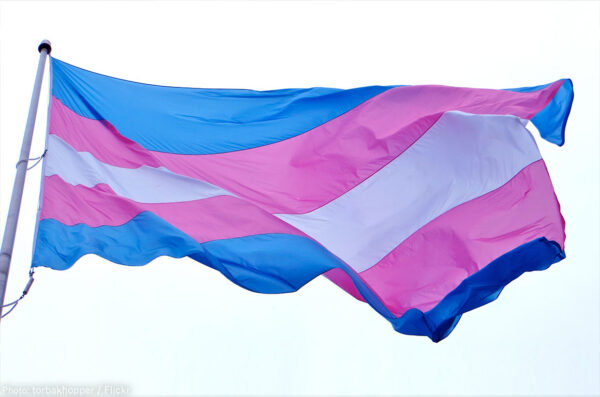ACLU Sues Florida Prison Officials over Refusal to Recognize, Provide Medical Treatment to Transgender Woman
Despite receiving treatment and living as female since age 14, inmate denied treatment in DOC custody; Eighth Amendment lawsuit seeks end to policy denying transgender inmates medically-necessary care
Tallahassee, Fla. – The American Civil Liberties Union (ACLU) of Florida has filed a lawsuit challenging the Florida Department of Corrections’ (DOC) denial of hormone therapy and other medically necessary treatment for a transgender woman currently detained in a state men’s prison. The lawsuit, filed today in the U.S. District Court for the Northern District of Florida, was brought on behalf of Reiyn Keohane, a transgender woman currently incarcerated at the Everglades Correctional Institution. She is represented by attorneys for the ACLU, ACLU of Florida, and international law firm DLA Piper.
Keohane, 22, has known that she has a female gender identity since the age of 12, and, with the support of medical professionals, has been living as female since age 14. At age 17, Keohane had her name legally changed from a traditionally male name, and began hormone therapy under the care of an endocrinologist at the age of 19.
While awaiting trial for an attempted murder charge in 2013, Keohane was refused the ability to continue her hormone therapy by the Lee County Jail. Keohane accepted a plea deal for the charge in 2014 with the understanding that she would be allowed to return to her hormone therapy after being transferred to DOC custody. However, she has been repeatedly denied this treatment since her transfer.
“Comprehensive treatment for gender dysphoria is critically important for the health and wellbeing of many transgender people,” stated ACLU of Florida staff attorney Daniel Tilley. “It is unconstitutional for the DOC to deny inmates any care that is medically necessary to treat their serious medical needs, and that is exactly what the DOC has done to Reiyn. The DOC essentially refuses to provide any meaningful care to transgender inmates, and Reiyn and many others suffer every day as a result.”
“Gender identity” refers to a person’s internal sense of their own gender. Typically, people who are designated female at birth identify as girls or women, and people who are designated male at birth identify as boys or men. For transgender individuals, however, one’s gender identity differs from the sex assigned to them at birth. The medical diagnosis for the incongruence between one’s gender identity and assigned sex and the clinical distress resulting from this incongruence is “gender dysphoria.”
After arriving in DOC custody in July 2014, Keohane repeatedly made clear to DOC officials that she needed to continue her treatment for her gender dysphoria, which included both hormone therapy and the ability to groom and dress consistent with her female gender identity. Not only was she denied restoration of the hormone therapy, but she has had female clothing items confiscated. She has filed numerous grievances to restore her treatment, but has been repeatedly denied.
The DOC has relied on a policy that explicitly targets transgender people and forbids any treatment that transgender inmates were not receiving prior to their incarceration. For Reiyn—who was receiving hormone therapy prior to her incarceration—the DOC has justified the denial of treatment on the grounds that since the Lee County Jail had denied her treatment, she had not actually been receiving the therapy at the time she was ultimately transferred to DOC custody.
“The Eighth Amendment's prohibition against cruel and unusual punishment includes withholding medically necessary treatment from inmates,” stated Ileana Blanco, a Managing Partner at DLA Piper. “Where, as here, medical professionals have determined that hormonal‎ therapy is medically necessary, it is unconstitutional to withhold it.”
The lawsuit, which names several DOC officials in their official capacities, asks the court to find that the DOC’s denial of treatment for her gender dysphoria is a violation of the Eighth Amendment to the U.S. Constitution’s ban on cruel and unusual punishment. The ACLU and DLA Piper have also asked the court for a preliminary injunction ordering the DOC to provide Reiyn her medically necessary treatments prior to a final ruling, as well as stop enforcing the DOC policy which prevents transgender inmates from receiving any treatment that they were not receiving prior to entering DOC custody.
Reiyn Keohane wrote a letter describing her experiences and the discrimination and harassment she has faced as a transgender woman being denied treatment for her gender dysphoria in prison. It reads in part:
“I know that I am not alone, that other women have been in my situation before, and had it better, or worse. […] I will fight this prejudice every step of the way so that there will be a better future for all other people who are thrown in prison, so that we may all have the treatment, dignity, and respect that every human being deserves, even if they have done wrong.”
Keohane’s full letter is available here:
The complaint filed today is available here:
The motion for preliminary injunction is available here:


